Education in East Africa’s Pastoralist Areas: Why are girls still not going to school?
Gender
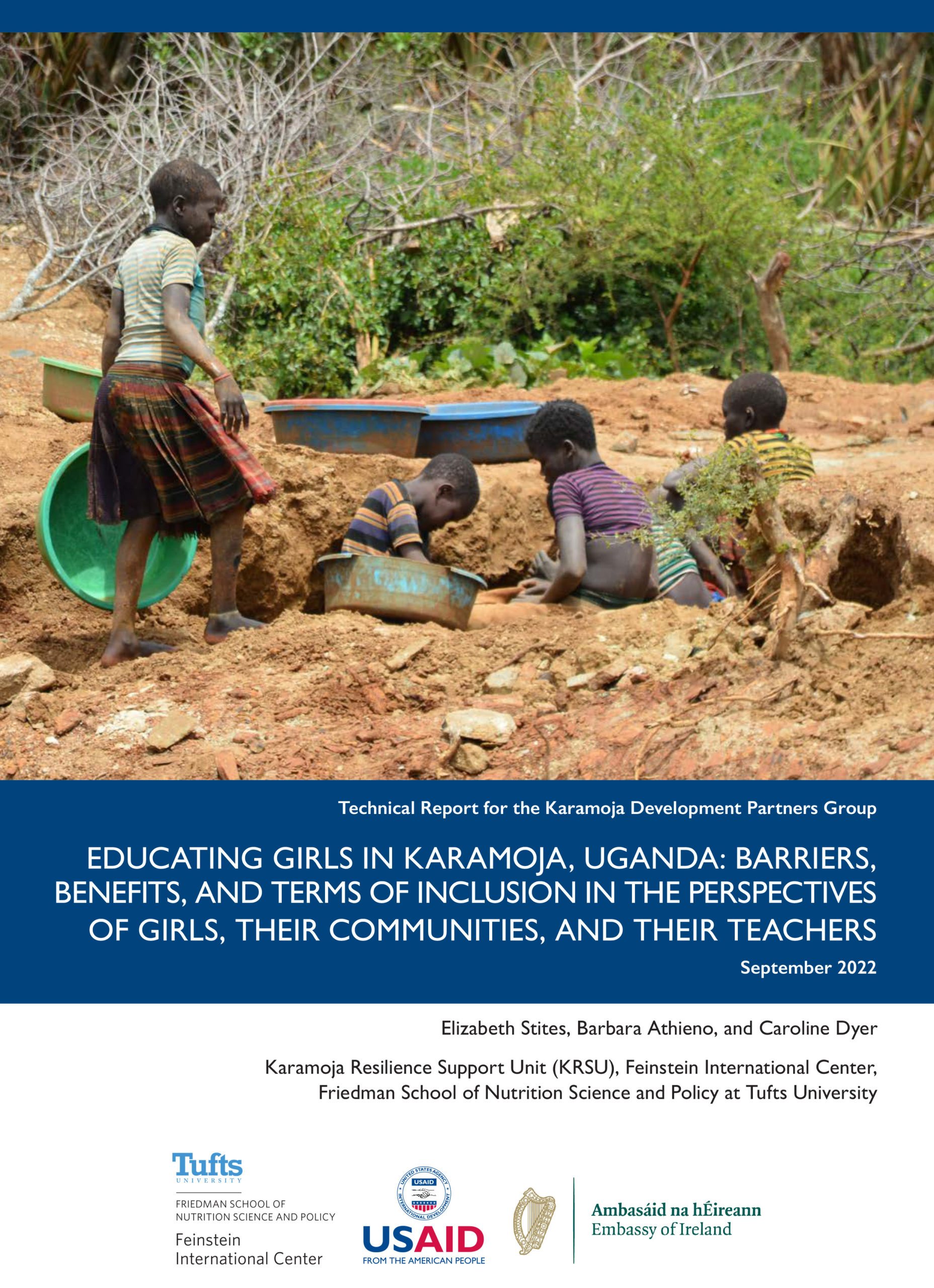
Educating Girls in Karamoja, Uganda: Barriers, Benefits, and Terms of Inclusion in the Perspectives of Girls, their Communities, and their Teachers
This scoping report investigates barriers, benefits, and “terms of inclusion” for girls’ education in the Karamoja sub-region of Uganda. Karamoja has some of the lowest education indicators in the country, with females generally faring much worse than males. The report examines the experiences and perceptions of girls, male and female community members, and teachers about girls’ education in the region, drawing on an assessment that took place from June to August 2022 in 10 sites in four districts: Amudat, Kaabong, Moroto, and Napak.
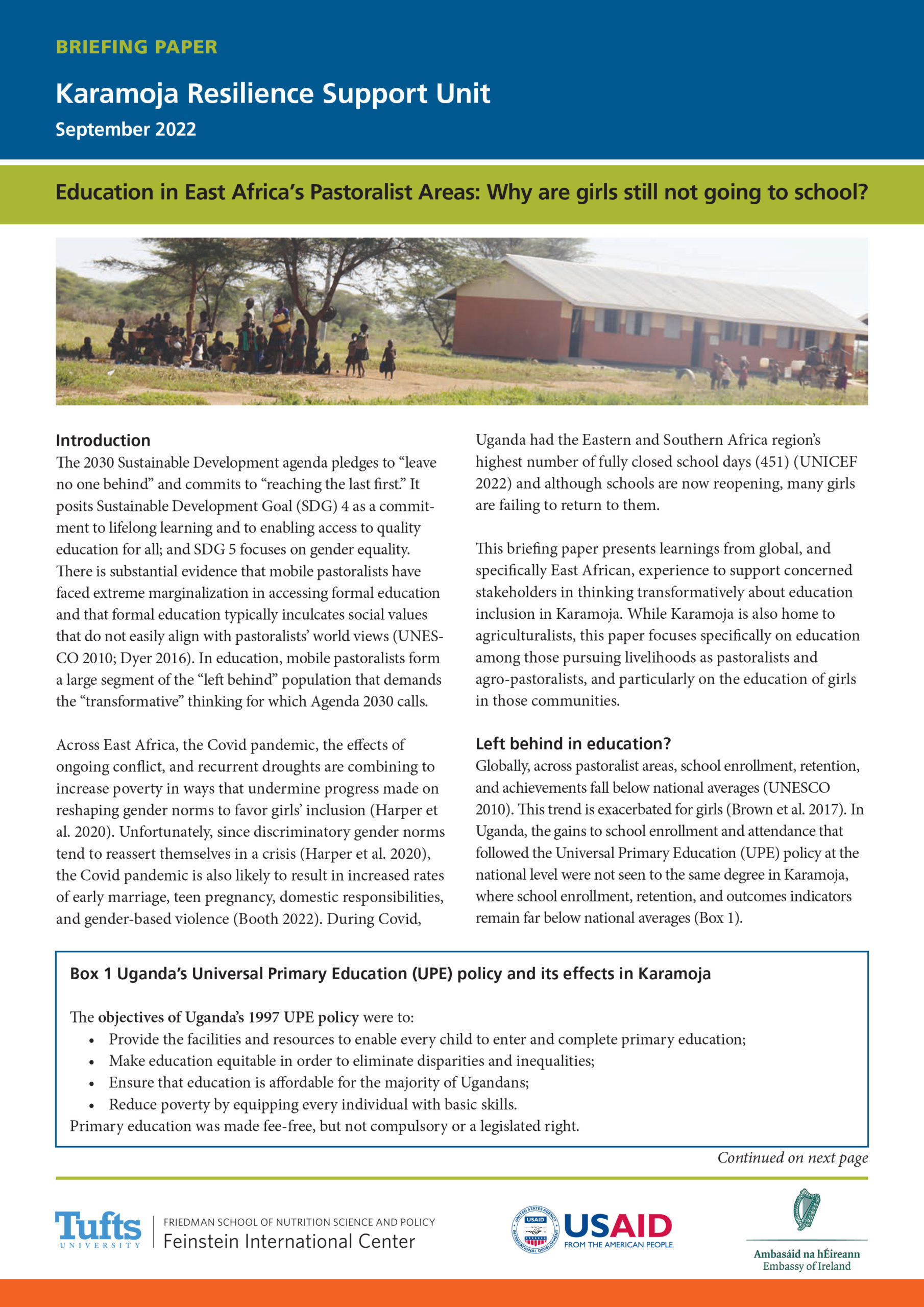
Education in East Africa’s Pastoralist Areas: Why are girls still not going to school?
This briefing paper presents learnings from global, and specifically East African, experience to support concerned stakeholders in thinking transformatively about education inclusion in Karamoja. While Karamoja is also home to agriculturalists, this paper focuses specifically on education among those pursuing livelihoods as pastoralists and agro-pastoralists, and particularly on the education of girls in those communities.
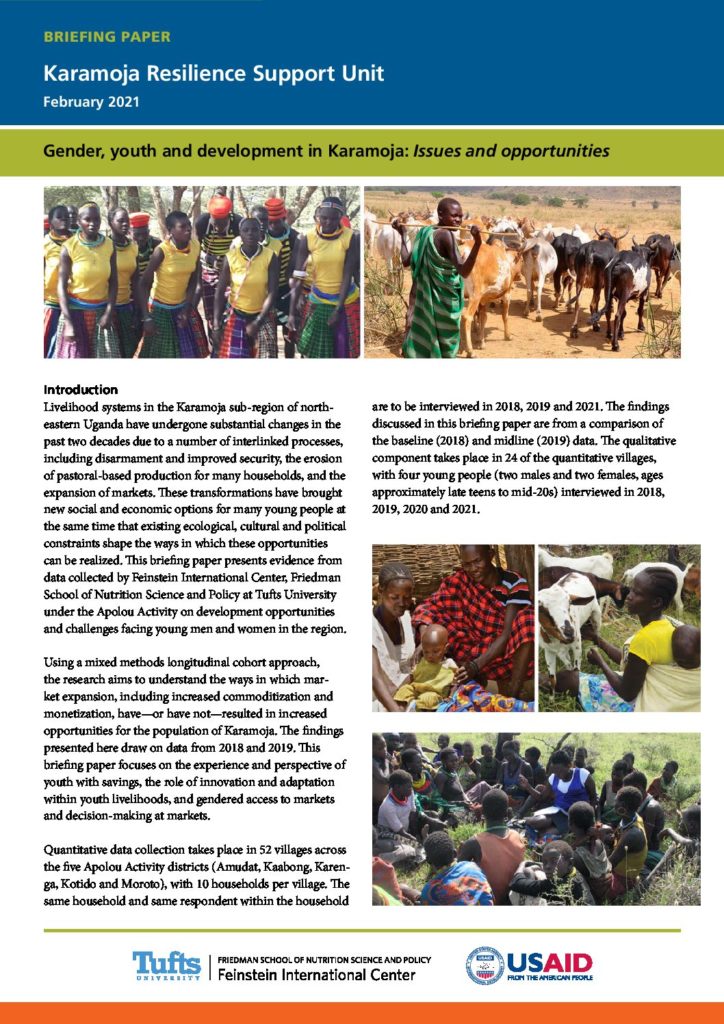
Gender, youth and development in Karamoja: Issues and opportunities
Livelihood systems in the Karamoja sub-region of northeastern Uganda have undergone substantial changes in the past two decades due to a number of interlinked processes, including disarmament and improved security, the erosion of pastoral-based production for many households, and the expansion of markets. These transformations have brought new social and economic options for many young people at the same time that existing ecological, cultural and political constraints shape the ways in which these opportunities can be realized. This briefing paper presents evidence from data collected by Feinstein International Center, Friedman School of Nutrition Science and Policy at Tufts University under the Apolou Activity on development opportunities and challenges facing young men and women in the region.
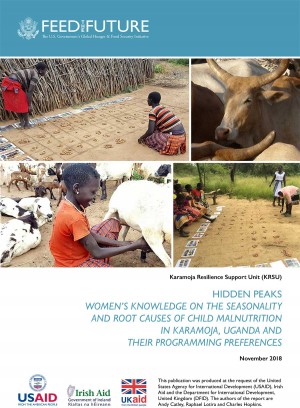
Hidden Peaks: Women’s Knowledge on the Seasonality and Root Causes of Child Malnutrition in Karamoja, Uganda and Their Programming Preferences
This report from the KRSU uses participatory epidemiology to understand women’s knowledge on the seasonality and causes of child malnutrition in Karamoja. The report provides important new information on the timing of peaks in child malnutrition, women’s views on the main causes of malnutrition and the relative importance of these causes, and women’s preferences for programs to reduce malnutrition
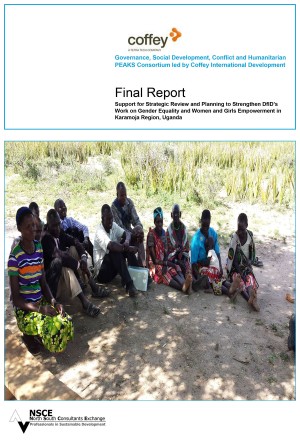
Final Report – Support for Strategic Review and Planning to Strengthen DfID’s Work on Gender Equality and Women and Girls Empowerment in Karamoja Region, Uganda
The purpose of the review is to strengthen gender equality and women’s and girl’s empowerment. DFID wishes to assess its work to date, in relation to the dynamic and changing social circumstances in the Karamoja, and in relation to inputs by other donors and organisations.
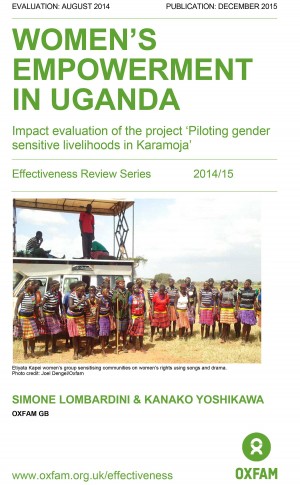
Women’s Empowerment in Uganda: impact evaluation of the project ‘Piloting gender sensitive livelihoods in Karamoja’
The Effectiveness Review took place in Kotido district, (Karamoja, Uganda) in August 2014, and set out to evaluate the impact of the project ‘Piloting gender sensitive livelihoods in Karamoja’ on dimensions of women’s empowerment in Karamoja. Project activities were implemented by Oxfam and partner organisations in the Kotido and Kaabong districts, Karamoja region, between July 2011 and March 2014.
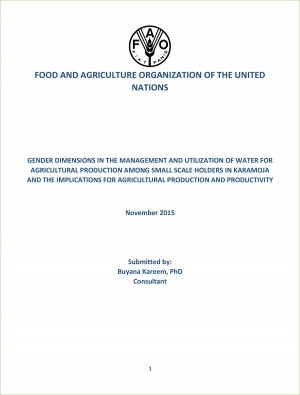
Gender Dimensions In The Management And Utilization Of Water For Agricultural Production Among Small Scale Holders In Karamoja And The Implications For Agricultural Production And Productivity
The report presents desk review findings on the gender dimensions of water for agricultural production, with a focus on Karamoja sub-region in northeastern Uganda, under four thematic areas: i) the gender dimensions of leadership and technical roles at community level; ii) gender considerations in construction, repair and mantainence of water facilities; iii) gender roles in the use of water for agricultural production and productivity; and iv) the implications for agricultural production and productivity. The report seeks to inform the implementation of FAO’s Gender Equality Policy (2013).